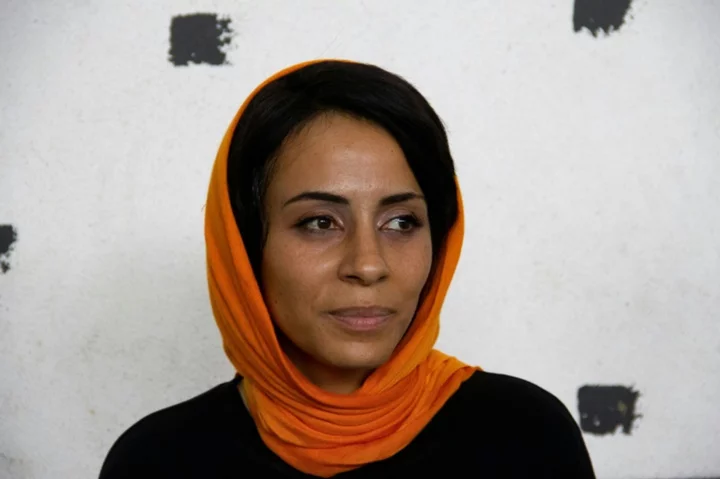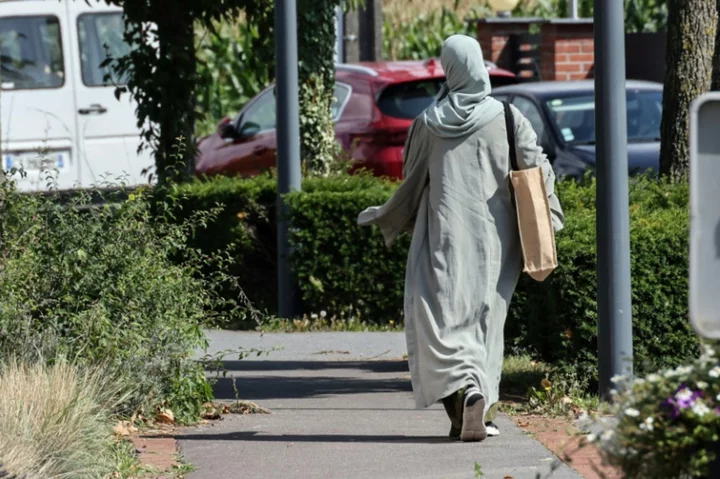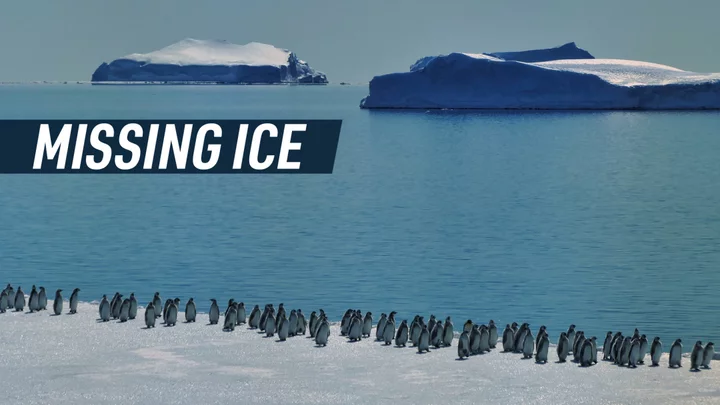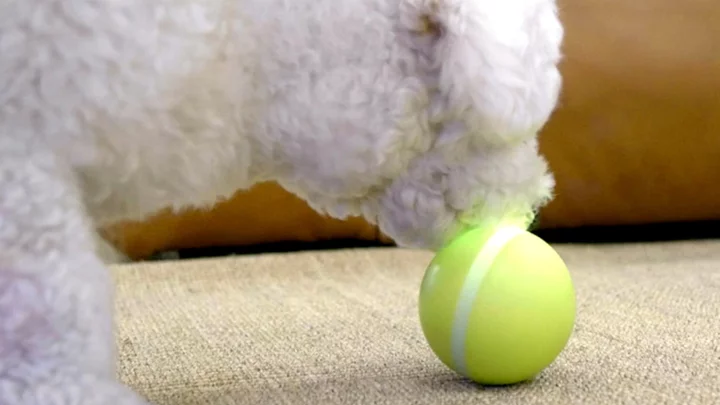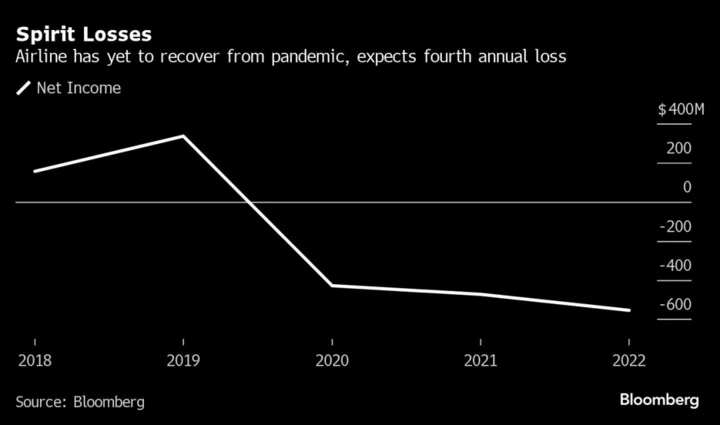27-year-old secondary school teacher Layla — who only wants to use her first name for privacy reasons — wishes she could tell her students more about pornography. Layla teaches PSHE (personal, social, and health education) and says porn is one of many serious subjects her school won’t talk about, but she believes the students are "obsessed with it" and "need to learn safety practices desperately."
"I overhear kids as young as 11 talk about porn in my classes," she tells Mashable. "The 13/14 year olds are showing porn to each other at school. Kids watch leaked celebrity sex tapes on lunch breaks and laugh at them," Layla explains.
She brought up porn lessons to her headmaster, suggesting an assembly on porn safety, but there was a "huge fear" surrounding it. "A lot of teachers don’t want to believe that young kids are watching porn, and they also think that if they’re not watching porn and we talk to them about it, they’ll find it because of us," Layla explains.
Why children need to learn about porn
Whether we like it or not, children need to learn about porn. Half of children are estimated to have seen pornography by the age of 13. For experts, such as Lucy Emmerson from The Sex Education Forum, this is worrying. Mainstream pornography often features violent and misogynistic depictions of sex, which could influence a young person who doesn’t know that porn is staged for entertainment only.
Want more sex and dating stories in your inbox? Sign up for Mashable's new weekly After Dark newsletter.
So, there’s an "urgent need to ensure that there’s an alternative script for today’s young people" so they know what to expect and aspire to from sex.
That should be coming from teachers, as part of sex education. Since 2021 it has been mandatory for all secondary schools in England to teach about the harms of pornography. Yet, in a poll from the same year, 58 percent of young people reported learning nothing at all or not enough about pornography.
Emmerson adds that while young people need to learn about porn at school, they need a solid foundation of sex and relationships education first as this builds up their knowledge about bodies, healthy relationships and online safety, and develops skills around things like peer pressure and communication. This makes it easier to teach about pornography, but a lot of schools in the UK are missing the basics.
VICE World News reporter Sophia Smith Galer found that government-provided teacher training modules covering issues such as consent and internet safety (including pornography use) have only been downloaded a few thousand times.
A 2019 survey found 28 percent of teachers believed their school was not ready to deliver sex education, and 47 percent lacked confidence in their own ability to teach it.Some teachers are also uncomfortable talking about porn (or sex at all) with kids. A 2019 survey found 28 percent of teachers believed their school was not ready to deliver sex education, and 47 percent lacked confidence in their own ability to teach it.
Three in ten sex education classes are also facilitated by teachers who don’t have any sex education related training. While some may argue this is better than nothing, poor sex education in school delivered by inappropriate facilitators can lead to negative sexual experiences in adulthood including learning about sex via trial and error which can lead to unwanted sexual experiences, reinforcing shame around sex and even sexual dysfunction.
Research also suggests pornography consumption without education on what pornography actually is, what it should be used for, and its potential harms, can lead to increased misogyny.
So, why are teachers resistant to talking about porn?
Emmerson notes that many adults received little or inadequate sex education themselves, and so there’s a “society-wide lack of experience of comfortable and appropriate conversations about porn and sex in general between two generations.”
This generational gap is exaggerated when it comes to porn because the nature of porn has changed rapidly in recent years both in terms of content. "There’s the ubiquity of aggression and violence, and the context of accessing porn via smart phones," she says.
Laura Clarke is a freelance sex educator teaching in various schools, and also provides sex education consultation to teachers. She includes information pornography in sex education, and believes this is vital because "children are specifically going to the internet to learn about sex when no one else is teaching them about it, and they find porn."
"Children are specifically going to the internet to learn about sex when no one else is teaching them about it, and they find porn."This is why her lessons mostly focus on porn being a fantasy, not a reality. "A quote I like to use when I teach young people about porn is 'you wouldn't learn to drive from Fast and Furious so don’t learn about sex from porn' — I like to really hammer home that porn is entertainment only."
SEE ALSO: Top 5 NSFW sites to learn what porn didn't teach you"I tell teenagers that everything is heightened in porn, that people’s bodies usually fit the beauty standards — especially with penis size and [how vaginas are presented] and that it's okay to look different," Clarke explains.
"You wouldn't learn to drive from 'Fast and Furious' so don’t learn about sex from porn.""A big part of my lessons on porn is helping people understand that if they see a sex act in a porn film, such as choking, that doesn’t mean their sexual partners in real life will want this."
She adds that in most mainstream porn, consent exchanges and communication are not on-screen even if they happen behind the scenes, so she makes sure kids know that’s not to be skipped in the real world.
A lot of the young people Clarke teaches about porn will tell her it’s the first time they’ve had open conversations about porn at all. Sometimes, they’ve not had any sex education whatsoever.
This isn’t surprising to Clarke, because she wishes she could include more porn information in her sex education, but there are some serious blockers hindering that progress in the classroom.
SEE ALSO: So, your partner watches porn. Here's why it's not a problem.What teachers (and parents) wish they could tell kids about porn
Like Layla, Clarke wishes she could do more to help and says there are many blockers to sex educators delivering the classes they want to.
As well as explaining the harms, Clarke wishes she could speak to young people openly about safe porn use. "You’re not going to stop young people from watching porn, so I wish I could tell them some ways to engage with that content in a healthier way and remove the shame, but that's seen as a taboo."
She explains that a lot of schools would no longer welcome an external facilitator if they spoke about porn consumption being healthy in any kind of way, even if she were to direct people to ethical porn, where sex depictions look more real and diverse.
SEE ALSO: Young men are stressed out about sex, report findsShe also notes that the current moral panic attached to sex education is already making parents sceptical of the classes. She fears being accused of encouraging porn-watching, if she were to offer teenagers safe porn tips.
"I think teachers are scared of upsetting parents, and want to appease them, but they also want to provide young people with the education they deserve," she says.
Emmerson explains that many parents may bury their heads in the sand with porn. Recent research revealed parents were vastly underestimating how much porn their children were watching.
What this can mean, though, is teachers are afraid of teaching porn in-depth because of parents, who are dodging the conversation completely. It's young people, ultimately, who suffer the consequences of that avoidance.
It's easy to see why teachers and parents find conversations about pornography with children difficult. It feels innately "wrong” to talk to a child about pornography and it’s understandably uncomfortable for parents to confront the idea of their children, who they want to protect, watching it at a young age. And if teachers are not being given the right training, are lacking confidence, or fearing backlash, just saying the word ‘porn’ in front of a class can feel like a huge weight.
However, just because something is hard, doesn’t mean it should be left behind. Parents, teachers, and other guardians need to acknowledge that porn is watched by children, and start talking to them about it.
Erika Lust, an award-winning ethical porn director, also provides free resources for parents to speak to their children about porn in collaboration with sexologists and educators via The Porn Conversation.
Lust tells Mashable, "Our children deserve to be heard in their natural curiosity about sex and to be supported in knowing that they have the power to decide how they wish to live their sex lives as individuals, regardless of what any kind of media tells them."
She adds that, rather than being scared away from porn or shamed for their use of it, they should be given tools to differentiate between types of porn they stumble upon online.
"Families and educators can create a space where kids and teens feel free to express their thoughts, curiosities, and feelings about porn, knowing they will be listened to and given support without judgement," Lust adds.
She continues, "Encourage them to question and criticise what they are exposed to in porn so they can make smarter decisions about sex and relationships in their real lives that are driven by knowledge and not by fear or shame."
Emmerson, from the Sex Education Forum, advises parents and teachers to spend time asking themselves what it is specifically about the idea of children consuming porn that worries you. Is it the nudity, the objectification of women, the prioritisation of male pleasure, the violence, the normalisation of particular sex acts, the porn industry? Whatever the answer is, talking to children about it frankly has the power to eliminate those fears.
A survey from this year showed more people want open discussion about real life sexual scenarios from their school education. Whether adults like it or not, porn use in young people is a real-life scenario.
So, as Emmerson says, "It’s high time to stop skirting around the edges and help both teachers and parents to have more honest and well planned conversations about porn, in ways that meaningfully engage with young people’s realities."


